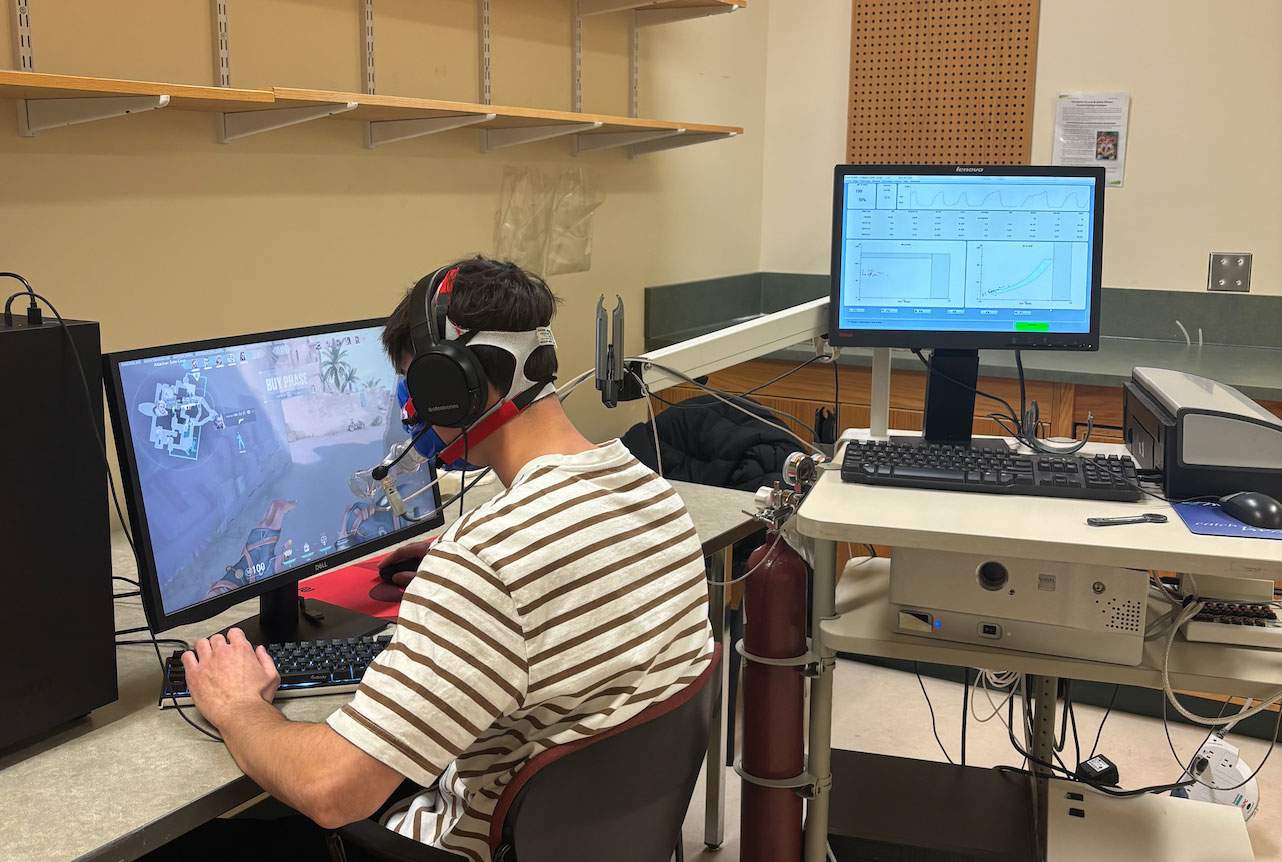
Do we burn calories while playing video games?
Azmarak Khan, a kinesiology student at the University of Saskatchewan, is looking into if video games burn calories.
By Alyssa Wiebe | Kinesiology CommunicationsVideo games are becoming increasingly popular among our society. Many use them as an outlet, entertainment, or way to connect with friends and family. However, some have claimed video games as their competitive sport and form of exercise.
Since he can remember, Khan has been interested in Esports, watching teams play and competing himself.
“I became interested in this idea after seeing a lot of articles about energy expenditure and stress levels in chess players, which prompted me with the idea of if this would be the same case in esports players, who similarly to chess use a lot of cognitive power and endure high amounts of stress especially at the elite/professional level," said fourth year kinesiology student, Azmarak Khan.
Throughout the study, eight participants are being tested, focusing on the top 2% of their respective games, or individuals currently playing on a esports team. The tests are being done by using a metabolic cart system that gives us researchers an idea of the energy expenditure during gameplay in METS (metabolic equivalent of task) and using the CSEP PATH in terms of their fitness testing measures.
“We have individuals in the lab, playing competitive video games while attached to a metabolic cart,” said Khan. “We are able to test how many calories they are burning and how much oxygen they are using.”
The findings may be surprising to many, especially those not involved in the video gaming community.
“In general, Esports is exponentially growing and is solidifying itself as its own genre of sport. It’s important to explore these new areas of research to develop the knowledge further and potentially contribute to the growth.”
The second part to the study is looking at the fitness levels of these players. He came across a study which suggested that players at higher levels of chess, had higher physical activity levels. He plans to further develop this research and see if this would be the case in the elite esports’ players being tested.
“In a way it also bridges two of my interests, the first being Esports and the second being physiology specifically in human sport. This idea allowed me to explore and combine both my ideas and contribute to both fields of research which made this project that much more meaningful to me as well.”
Khan hopes to publish his findings and bring light to society viewing Esports as a competitive sport and not just a casual hobby. There is a strong Esports community at USask that initially started with USask Rec and have recently joined forces with the Department of Computer Science.
